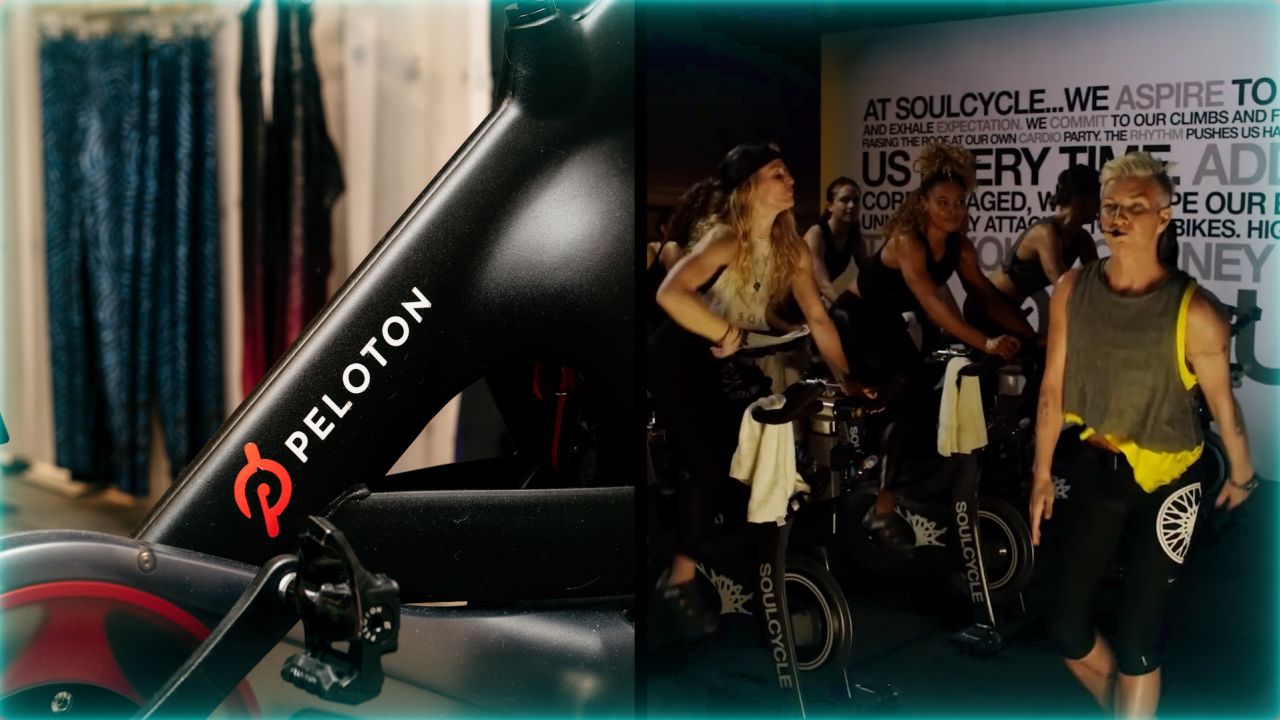Peloton and Lululemon, former foes, are teaming up together.
The fitness companies announced a five-year “strategic global partnership,” which involves Lululemon ditching its Mirror fitness hardware and Peloton reducing production of its private-label line of fitness clothing. Financial terms of the deal weren’t disclosed.
Beginning next month, Lululemon will become the primary maker of Peloton-branded fitness clothing, meaning Peloton will drastically reduce the number of its own clothing that it makes in-house. The clothing line sparked a lawsuit between the companies with Lululemon accusing Peloton of creating “copycat products.” The two companies settled the lawsuit last year.
The new clothing line will be sold online and at Peloton studios beginning October 11.
In return, Lululemon will stop selling its $995 Mirror fitness device by the end of the year and soon end producing its own Peloton-like fitness classes. In the next few months, Peloton’s streaming fitness classes will be available in the “Lululemon Studio” app for subscribers. Lululemon relaunched the app about a year ago as a Peloton rival, giving subscribers streaming classes from trendy fitness studios, like celebrity favorites AARMY and Dogpound.
Mirror has been a sore spot for Lululemon since its purchase during the height of the Covid-19 pandemic in 2020. The $500 million acquisition was written off earlier this year, essentially becoming worthless, and forced Lululemon to search for strategic alternatives to the device. A last-ditch effort in 2022 to cut its price and broaden its appeal with new fitness classes seemingly failed to generate interest from consumers.
“By bringing together the best in fitness content with the best in athletic apparel, we’ll give our communities one-of-a-kind experiences and special content that will inspire them to achieve their goals,” said Dion Camp Sanders, Peloton’s chief emerging business officer, in a press release.
The partnership stems from both companies realizing that “dabbling in areas outside of their core competencies was not yielding results,” according to Neil Saunders, a retail analyst for GlobalData.
“Peloton’s push into apparel was a failure as the selection was weak and looked incredibly lackluster in stores. The company was not doing sufficient volume to justify the operation,” Saunders told CNN. “Lululemon’s Mirror device was a flop because it was too expensive and too complex.”
“The partnership is beneficial for both firms, but Peloton arguably needs it more as it is still on very shaky ground financially,” he added.
Shares of Peloton (PTON) rose about 7% in midday trading Thursday, while Lululemon (LULU) stock was flat.
Correction: Peloton isn’t completely ending production of its in-house clothing as previously stated, rather reducing its line of apparel as Lululemon becomes its “primary athletic apparel partner.”
























